May 11, 2017 •
Tennessee General Assembly Adjourns 2017 Session
The 2017 session of the 110th Tennessee General Assembly adjourned on Wednesday, May 10. Hesitant to make a last-minute decision on such a significant matter, lawmakers postponed a bill to increase campaign contribution limits for legislators. Legislation did pass requiring […]
 The 2017 session of the 110th Tennessee General Assembly adjourned on Wednesday, May 10.
The 2017 session of the 110th Tennessee General Assembly adjourned on Wednesday, May 10.
Hesitant to make a last-minute decision on such a significant matter, lawmakers postponed a bill to increase campaign contribution limits for legislators. Legislation did pass requiring lawmakers to report contributions or funding from private sources for trips and other items.
The General Assembly will reconvene at noon on Tuesday, January 9, 2018.
May 9, 2017 •
West Virginia Disclosure Laws Effective in July
Lawmakers passed two measures dealing with ethics and transparency during the regular legislative session that wrapped up in April. House Bill 2319 will become effective July 5, requiring candidate committees for members of the Legislature to make additional disclosures of […]
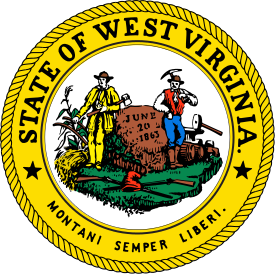 Lawmakers passed two measures dealing with ethics and transparency during the regular legislative session that wrapped up in April.
Lawmakers passed two measures dealing with ethics and transparency during the regular legislative session that wrapped up in April.
House Bill 2319 will become effective July 5, requiring candidate committees for members of the Legislature to make additional disclosures of contributions and fundraising events while the Legislature is in session.
House Bill 2001 will become law July 7, requiring companies contracting with state agencies on contracts over $100,000 to make disclosures listing interested parties to the contract.
Bills that were not approved during the legislative session do not carry over.
On April 18, Long Beach City Council approved a measure to repeal a local campaign finance law which barred elected officials from contributing officeholder funds to other candidates running for elective office. The restriction risked being challenged as unconstitutional and […]
 On April 18, Long Beach City Council approved a measure to repeal a local campaign finance law which barred elected officials from contributing officeholder funds to other candidates running for elective office.
On April 18, Long Beach City Council approved a measure to repeal a local campaign finance law which barred elected officials from contributing officeholder funds to other candidates running for elective office.
The restriction risked being challenged as unconstitutional and the repeal brings city law more in line with current state rules.
The City Council voted 5-3 in favor of the repeal.
March 28, 2017 •
Kentucky’s Governor Signs Campaign Finance Bill
Gov. Matt Bevin approved changes to a campaign finance law yesterday, March 27, 2017. Senate Bill 75 doubles current contribution limits for individuals giving to candidates, state executive committees, and caucus campaign committees. The limit for individuals giving to PACs […]
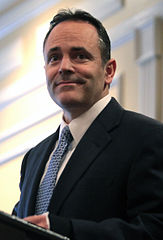 Gov. Matt Bevin approved changes to a campaign finance law yesterday, March 27, 2017.
Gov. Matt Bevin approved changes to a campaign finance law yesterday, March 27, 2017.
Senate Bill 75 doubles current contribution limits for individuals giving to candidates, state executive committees, and caucus campaign committees. The limit for individuals giving to PACs also increases from $1,500 to $2,000.
Contributions to candidates and PACs will be indexed for inflation every odd-numbered year based on the Consumer Price Index. The bill also creates a single reporting threshold of $3,000 for campaign finance reports.
The bill is effective June 28, 2017, or 90 days from adjournment sine die of the regular session of the Legislature.
March 17, 2017 •
News You Can Use Digest – March 17, 2017
Federal: Admiral, Seven Others Charged with Corruption in New ‘Fat Leonard’ Indictment Washington Post – Craig Whitlock | Published: 3/14/2017 A retired U.S. Navy admiral and eight other high-ranking officers were indicted in a bribery scandal in which prosecutors say […]

Federal:
Admiral, Seven Others Charged with Corruption in New ‘Fat Leonard’ Indictment
Washington Post – Craig Whitlock | Published: 3/14/2017
A retired U.S. Navy admiral and eight other high-ranking officers were indicted in a bribery scandal in which prosecutors say a foreign contractor traded luxury travel, lavish gifts, and prostitutes for inside intelligence. A total of 25 military officers and private-sector executives have now been prosecuted in one of the worst corruption scandals to hit the military in years. Prosecutors accused the officers of betraying the public trust for bribes from a well-connected military contractor in Singapore, Leonard Francis, known as “Fat Leonard.” The scheme cost the Navy “tens of millions of dollars” in overbillings to Francis’ firm, as he relied on sensitive and sometimes classified information the officers had given them to game the system, according to the indictment.
FEC Earning Congressional Attention – for the Wrong Reasons
Center for Public Integrity – Dave Levinthal | Published: 3/13/2017
The FEC, an agency of clashing commissioners, unhappy staffers, and key vacancies, may soon face a hearing by the Committee on House Administration, something the agency has not endured since 2011 when super PACs were still novel and the Citizens United decision was not yet two years old. A planned oversight hearing in 2014 never materialized. An oversight hearing is “both urgent and necessary” and should be conducted “sooner rather than later,” said Jamie Fleet, a spokesperson for U.S. Rep. Robert Brady, the committee’s ranking Democrat. The Senate Committee on Rules and Administration also appears to have increased appetite for reviewing FEC affairs. Although this committee has conducted FEC confirmation hearings, it has not specifically conducted an oversight hearing since 2004.
In a Fact-Challenged Era, Will Public Access to Federal Data Be the Next Casualty?
McClatchy DC – Stuart Leavenworth and Adam Ashton | Published: 3/12/2017
Since taking office, the Trump administration has made a series of moves that have alarmed groups with a stake in public access to information: historians, librarians, journalists, climate scientists, and internet activists, to name a few. Some are so concerned they have thrown themselves into “data rescue” sessions nationwide, where they spend their weekends downloading and archiving federal databases they fear could soon be taken down or obscured. Previous presidential transitions have triggered fears about access to government data, but not of this scope.
Prerequisite for Key White House Posts: Loyalty, not experience
New York Times – Sharon LaFraniere, Nicholas Confessore, and Jesse Drucker | Published: 3/14/2017
Every president comes into office with friends and hangers-on who sometimes have minimal experience in government. But few have arrived with a contingent more colorful and controversial than that of President Trump, whose White House is peppered with assistants and advisers whose principal qualification is their long friendship with Trump and his family. The influence of longtime Trump friends and associates, some of them with vague portfolios, comes as a leadership void has been created by the administration’s slow pace in filling top jobs in many agencies. It has also added to the confusion of a West Wing already legendary for its power struggles, while bewildering Washington policy hands.
Suing Trump on Ethics? Good Luck Making Your Case
Politico – Isaac Arnsdorf and Darren Samuelsohn | Published: 3/9/2017
Many people – New York’s attorney general, law professors, and Washington restaurant owners among them – think President Trump is breaking laws by holding onto his businesses. But they are still searching for a successful courtroom strategy to force him to divest. The president is not bound by the main federal law against conflicts-of-interest. Legal experts have argued since Trump won the election, however, that he is violating the constitutional ban on accepting payments from foreign government and is putting federal agencies under his control in the impossible position of having to supervise his businesses. While the legal problems may be obvious, the responses are not. It is an area of law that has never before been tested because there has never before been a billionaire president intent on maintaining his commercial ties while in office.
From the States and Municipalities:
California – Garcetti Bans Private Meetings Between Developers and Planning Commissioners
Los Angeles Times – Emily Alpert Reyes | Published: 3/9/2017
City planning commissioners will be barred from meeting privately with developers looking to get a project approved under an executive directive signed by Los Angeles Mayor Eric Garcetti. The possible influence of big developers on planning decisions was at the center of a heated battle in the recent election. Proponents of the now-defeated Measure S say the existing planning process follows a “pay-to-play” model that gives developers too much sway over what gets built in the city. The ban applies to members of the city’s Planning Commission and the Cultural Heritage Commission, as well as members of area planning commissions. They are prohibited from meeting or communicating privately with anyone about development plans unless they recuse themselves from the process.
Kentucky – Lawmakers Approve Flurry of Bills as End of Legislative Session Looms
Lexington Herald-Leader – Daniel Desrochers and Jack Brammer | Published: 3/14/2017
Kentucky lawmakers gave final approval to Senate Bill 75, which doubles the amount individuals and PACs can donate to a campaign, state executive committee, and caucus campaign committee, along with other changes to state campaign finance laws. Supporters of the bill said the legislation was necessary to increase the number of transparent donations and give regular people a chance to run for office against candidates funded by PACs. Opponents of argued that raising the limits created the wrong impression and the Legislature should curb ‘dark money” instead.
Minnesota – Does Being a Minnesota Legislator Mean Never Having to Say You’re Sorry?
MinnPost.com – Briana Bierschbach | Published: 3/16/2017
Critics say there is a systemic weakness in how the Minnesota Legislature polices its members, a process that rarely catches potential conflicts before they happen and seldom punishes lawmakers for engaging in unethical behavior. Many lawmakers have other sources of income outside their work at the Capitol, so legislators are sometimes asked to vote on policies that have the possibility of intersecting with their private lives. Over the last 30 years, there have been just 11 ethics hearings in the Minnesota House. Legislators were reprimanded or forced to apologize in four of those cases. Ethics hearings in the Senate have been more numerous, if not exactly frequent; between 1994 and 2017 there were 21 hearings. In just five of those cases were senators forced to apologize or leave a committee post.
New Jersey – N.J. Moves to Restore Election Watchdog
Philadelphia Inquirer – Andrew Seidman | Published: 3/13/2017
New Jersey’s election watchdog agency had two vacancies filled recently, which means it will once again be able to punish candidates who violate campaign-finance rules. The Election Law Enforcement Commission (ELEC) has gone a full year without holding a meeting because of three vacancies on its four-member board, an unprecedented bout of paralysis since the agency’s founding in 1972. Without holding monthly meetings, the ELEC cannot vote on any matter, amend regulations, or punish those who violate the state’s campaign finance, lobbying, or “pay-to-play” restrictions.
New Mexico – Legislature Passes Campaign Finance Reform Years in The Making
New Mexico In Depth – Sandra Fish | Published: 3/14/2017
The New Mexico Legislature passed two campaign finance reform bills. Senate Bill 96 defines “coordination” in campaigns, and requires disclosure of independent spending up to 30 days before a primary or 60 days before a general election. It also doubles the donation limits for legislators to $5,000 for each primary and general election cycle. Senate Bill 97 refines and clarifies state law on public financing, which applies to judges and public regulation commissioners. Both bills now go to Gov. Susana Martinez.
New York – Preet Bharara Shunned Politics. His End Was Tinged by Them.
New York Times – Benjamin Weiser, Ben Protess, Matthew Goldstein, and William Rashbaum | Published: 3/12/2017
The Trump administration fired U.S. Attorney Preet Bharara after he refused to follow a Justice Department order to resign immediately. The order, which also applied to 45 other holdover U.S. attorneys who served under the Obama administration, came only a few months after Donald Trump, then the president-elect, had asked Bharara to stay in the job. It was a sudden and highly politicized end to Bharara’s seemingly apolitical tenure, which was noted for prosecutions of powerful politicians of both parties. As he leaves office, Bharara’s prosecutors are reaching a critical juncture in an investigation into the campaign fundraising of New York City Mayor Bill de Blasio and are preparing to try a group of former aides and associates of Gov. Andrew Cuomo in a bribery and bid-rigging case.
South Dakota – After Promising to Replace, Did Lawmakers Deliver on IM22?
Sioux Falls Argus Leader – Dana Ferguson | Published: 3/11/2017
Citing flaws and objections to parts of the voter-backed Initiated Measure 22 (IM22), South Dakota legislators vowed to repeal and replace the ethics reform law with bills to address the concerns of voters who supported the expansive ballot measure. The Legislature followed through, passing eight bills aimed at creating lobbyist restrictions, allowing for investigation of wrongdoing in state government, and requiring more disclosure in campaign finance. But it did not approve a public campaign finance program, set lower contribution limits, or rule out certain gifts from lobbyists. And the bills aimed at filling the void left by IM22 received mixed reviews in Pierre as lawmakers ended the main part of the legislative session.
Texas – Texas Congressional Maps Are Struck Down for Discrimination
New York Times – Manny Fernandez | Published: 3/11/2017
A panel of federal judges ruled that Texas’s Republican-led Legislature gerrymandered some of the state’s congressional districts to stunt the growing influence of minority voters. The decision invalidated three congressional districts in south and west Texas and in the Austin area. Although a remedy was not prescribed, redrawing the districts will probably aid Latino and Democratic voters. The congressional redistricting plan was drawn by the Legislature in 2011, the same year a voter ID law was passed that a federal appeals court ultimately found discriminates against minorities. The combination of rulings could lead to Texas being required to have election changes approved in advance by federal officials. It and other states were freed from that requirement by a U.S. Supreme Court decision in 2013.
Virginia – Virginia Lawmakers Are Accepting Drastically Fewer Gifts in Post-McDonnell Era, Data Shows
The Virginian-Pilot – Will Houp | Published: 3/9/2017
Both political parties in Virginia have drastically reduced what gifts they accept or report over the past three years. Lawmakers received $15,520 worth from May to October 2016, a 60 percent drop from that same six-month span in 2015. The average gift last year was $131; it was $195 two years ago. After former Gov. Bob McDonnell was convicted in 2014 on multiple counts of public corruption, lawmakers placed new limits on the value of gifts they can accept. And despite the U.S. Supreme Court overturning McDonnell’s conviction last year, many legislators are reluctant to accept anything that reaches the $50 threshold needed to report it.
 State and Federal Communications produces a weekly summary of national news, offering more than 60 articles per week focused on ethics, lobbying, and campaign finance.
State and Federal Communications produces a weekly summary of national news, offering more than 60 articles per week focused on ethics, lobbying, and campaign finance.
March 15, 2017 •
Kentucky Lawmakers Pass Campaign Finance Bill
The Kentucky Legislature passed a bill this week to double the limits on contributions from individuals and PACs to candidates, state executive committees, and caucus campaign committees. Senate Bill 75, according to supporters, provides greater transparency and will make it […]
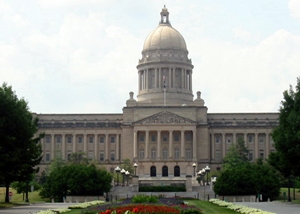 The Kentucky Legislature passed a bill this week to double the limits on contributions from individuals and PACs to candidates, state executive committees, and caucus campaign committees.
The Kentucky Legislature passed a bill this week to double the limits on contributions from individuals and PACs to candidates, state executive committees, and caucus campaign committees.
Senate Bill 75, according to supporters, provides greater transparency and will make it easier for everyday citizens to compete with dark money while running for office.
Opponents, however, believe the focus should be on curbing dark money and adding more money to the equation will further erode public trust.
Nonetheless, the bill will now be sent to the governor for review.
February 22, 2017 •
Kentucky Senate Passes Bill to Double Contribution Limits
A bill to raise the limit on what individuals may contribute to campaigns has passed the Kentucky Senate. Senate Bill 75, sponsored by Sen. Damon Thayer, doubles the limit for individuals giving to candidates, caucus committees, and political parties. The […]
 A bill to raise the limit on what individuals may contribute to campaigns has passed the Kentucky Senate.
A bill to raise the limit on what individuals may contribute to campaigns has passed the Kentucky Senate.
Senate Bill 75, sponsored by Sen. Damon Thayer, doubles the limit for individuals giving to candidates, caucus committees, and political parties.
The bill, similar to a measure introduced by Thayer in the past, also creates an additional disclosure report 60 days prior to an election. The bill has been transmitted to the House for consideration.
February 17, 2017 •
Several Campaign Finance Bills Introduced in Legislative Assembly of British Columbia
On February 16, several campaign finance bills were introduced in the Legislative Assembly of British Columbia. Introduced as a private member’s bill by British Columbia’s New Democratic Party Leader John Horgan, the “Get Big Money Out of Politics Act” legislation […]
 On February 16, several campaign finance bills were introduced in the Legislative Assembly of British Columbia.
On February 16, several campaign finance bills were introduced in the Legislative Assembly of British Columbia.
Introduced as a private member’s bill by British Columbia’s New Democratic Party Leader John Horgan, the “Get Big Money Out of Politics Act” legislation bans union and corporate donations to political campaigns, allows only individuals normally residing in British Columbia to make political contributions, and restricts the premier and cabinet ministers from outside income.
Member of the Legislative Assembly Vicki Huntington’s bill, “Cash for Access Elimination Act, 2017,” prohibits members of the Executive Council and their employees from attending fundraising functions, personally soliciting political contributions, or attending or inviting individuals and organizations to attend fundraising functions. Huntington also submitted to the Assembly the “Election Finance Amendment Act, 2017,” which bans corporate and union donations, caps political donations at $1,500 a year, and allows them to be received only from British Columbians. The Local Elections Campaign Financing Act is also amended by this bill.
Additional bills introduced yesterday include the “Banning Publicly-funded Campaign Advertisements, 2017,” which bans government advertising during the four months preceding a general election, the “Fairness in Financing Local Government Elections Act, 2017,” which amends the Local Elections Campaign Financing Act to eliminate union and corporate donations in municipal election campaigns, and the “Fixed Fall Election Amendment Act, 2017,” which amends the Constitution Act to move the general election from May to October.
February 15, 2017 •
Missouri Ethics Commission Issues Advisory Opinions Regarding Constitutional Amendment 2
The Missouri Ethics Commission recently released a series of advisory opinions related to Constitutional Amendment 2. The amendment, passed by the voters in the November election, amended state campaign finance laws. The new advisory opinions address issues not fully articulated […]
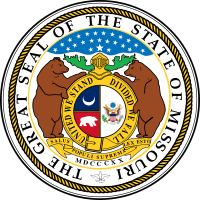 The Missouri Ethics Commission recently released a series of advisory opinions related to Constitutional Amendment 2. The amendment, passed by the voters in the November election, amended state campaign finance laws.
The Missouri Ethics Commission recently released a series of advisory opinions related to Constitutional Amendment 2. The amendment, passed by the voters in the November election, amended state campaign finance laws.
The new advisory opinions address issues not fully articulated in the constitutional amendment. Opinions confirm: contribution limits do not apply to local candidates; the definitions of continuing and political action committees are substantially the same and are interpreted to be the same; and contribution limits only apply to continuing or political action committees if a contribution to the committee is designated for a specific candidate.
Another opinion finds a limited liability company to be a corporation for the purpose of the corporate contribution ban if the LLC is an eligible entity electing to be classified as a corporation under the federal tax code.
Other opinions relate to the eligibility of foreign corporations contributing to Missouri PACs, the application of the $25,000 per election aggregate limit to be received by a political party, and the applicability of contribution limits to state legislative campaign committees.
February 14, 2017 •
Oregon Lawmakers to Consider Pay-to-Play Bills
Rep. Knute Buehler is set to introduce two bills to restrict pay-to-play politics. House Joint Resolution 17 seeks to amend the Oregon Constitution to ban corporations, nonprofits and labor unions from making contributions to candidates or political action committees. House […]
 Rep. Knute Buehler is set to introduce two bills to restrict pay-to-play politics.
Rep. Knute Buehler is set to introduce two bills to restrict pay-to-play politics.
House Joint Resolution 17 seeks to amend the Oregon Constitution to ban corporations, nonprofits and labor unions from making contributions to candidates or political action committees.
House Bill 2914 would require bidders on state contracts to disclose their five greatest campaign contributions in the state.
If passed, the measures would likely face legal challenges on the basis of free speech restrictions.
February 9, 2017 •
Vermont Increases Contribution Limits
Vermont has increased contribution limits to candidates, PACs, and political parties. By statute, contribution limits are reevaluated and adjusted based on the Consumer Price Index. A 2.1 percent increase was implemented allowing statewide candidates and PACs to receive $4,080 per […]
 Vermont has increased contribution limits to candidates, PACs, and political parties.
Vermont has increased contribution limits to candidates, PACs, and political parties.
By statute, contribution limits are reevaluated and adjusted based on the Consumer Price Index. A 2.1 percent increase was implemented allowing statewide candidates and PACs to receive $4,080 per election cycle, state Senate candidates to receive $1,530, and state representative candidates to receive $1,020.
Each limit applies to contributions from a single source or PAC.
This change is effective for two years, and thereafter, increases will apply for the term of two two-year general election cycles.
February 8, 2017 •
Tennessee Adjusts Contribution Limits for 2017-2018 Elections
The Tennessee Registry of Election Finance recently published updated contribution limits for 2017 and 2018 elections. The limits are adjusted in every odd-numbered year based on changes in the Consumer Price Index. Individuals may now contribute $4,000 per election to […]
 The Tennessee Registry of Election Finance recently published updated contribution limits for 2017 and 2018 elections. The limits are adjusted in every odd-numbered year based on changes in the Consumer Price Index.
The Tennessee Registry of Election Finance recently published updated contribution limits for 2017 and 2018 elections. The limits are adjusted in every odd-numbered year based on changes in the Consumer Price Index.
Individuals may now contribute $4,000 per election to statewide candidates. The limit for individuals contributing to local, state legislative, or other state candidates remains unchanged.
PACs may contribute $7,800 per election to local candidates and to candidates for state House, criminal court judge, circuit court judge, chancellor, probate court judge, district attorney general, or public defender. They may contribute $11,800 per election to statewide candidates and to candidates for state Senate. The aggregate PAC limit for all non-statewide elections was increased to $118,100.
Primary and general elections are considered separate elections for the purpose of campaign contribution limits.
February 6, 2017 •
FEC Adjusts Lobbyist Bundling Disclosure Threshold Amount
On Friday, February 3, the Federal Election Commission (FEC) published its price index adjustments for expenditure limitations and the federal lobbyist bundling disclosure threshold. The lobbyist bundling disclosure threshold has increased for 2017 from $17,600 to $17,900. This threshold amount […]
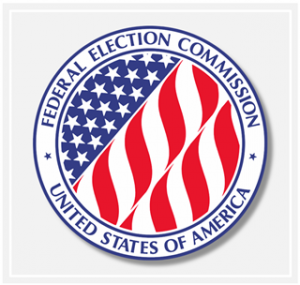 On Friday, February 3, the Federal Election Commission (FEC) published its price index adjustments for expenditure limitations and the federal lobbyist bundling disclosure threshold.
On Friday, February 3, the Federal Election Commission (FEC) published its price index adjustments for expenditure limitations and the federal lobbyist bundling disclosure threshold.
The lobbyist bundling disclosure threshold has increased for 2017 from $17,600 to $17,900. This threshold amount is adjusted annually. Federal law requires authorized committees of federal candidates, leadership political action committees (PACs), and political party committees to disclose contributions bundled by lobbyists and lobbyists’ PACs.
Additionally, the FEC published its adjusted Coordinated Party Expenditure Limits for political parties for 2017.
February 2, 2017 •
Let the Fundraising Begin: FEC Publishes Contribution Limits for 2017-2018 Election Cycle
Today, the Federal Election Commission (FEC) published the 2017-2018 election cycle contribution limits, which have been indexed for inflation. As required by the Bipartisan Campaign Reform Act of 2002, the FEC must adjust certain contribution limits every two years. The […]
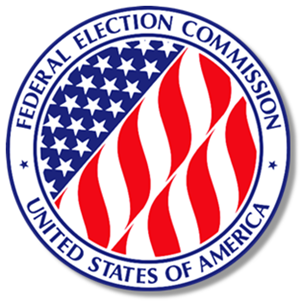 Today, the Federal Election Commission (FEC) published the 2017-2018 election cycle contribution limits, which have been indexed for inflation. As required by the Bipartisan Campaign Reform Act of 2002, the FEC must adjust certain contribution limits every two years.
Today, the Federal Election Commission (FEC) published the 2017-2018 election cycle contribution limits, which have been indexed for inflation. As required by the Bipartisan Campaign Reform Act of 2002, the FEC must adjust certain contribution limits every two years.
The individual and nonmulticandidate PAC contribution limit to federal candidates will remain at $2,700 for both primary and general elections, allowing for a total of $5,400 for a federal candidate. The limits on contributions by individuals to national party committees has increased from $33,400 to $33,900 per calendar year.
Individuals may now contribute $101,700 per calendar year to committees of a national political party for presidential nominating conventions, to committees of a national political party for preparation for and the conduct of election recounts and contests and other legal proceedings, and to committees of a national political party for the construction, purchase, renovation, operation, and furnishing of one or more buildings for party headquarters.
The new limits are effective retroactively to January 1, 2017.
State and Federal Communications, Inc. provides research and consulting services for government relations professionals on lobbying laws, procurement lobbying laws, political contribution laws in the United States and Canada. Learn more by visiting stateandfed.com.

